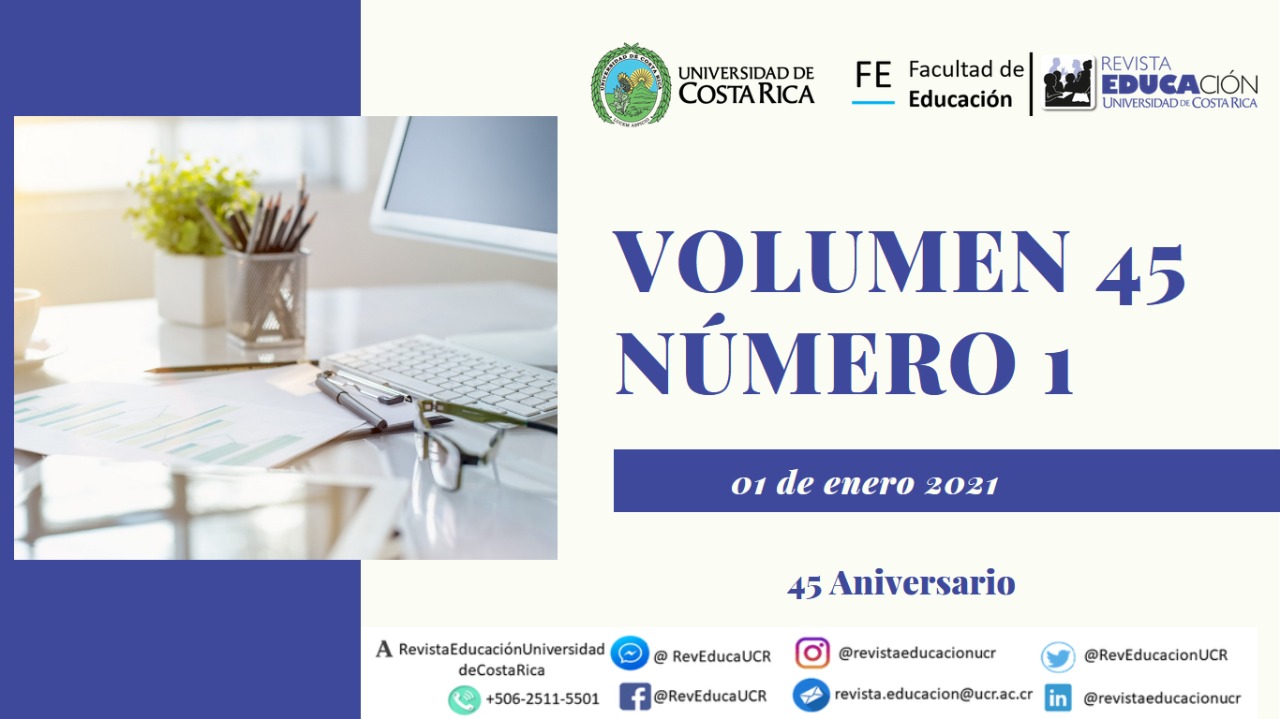Abstract
Education and schooling must constantly adjust to the political, social and economic change of global contexts. Government initiatives worldwide to promote STEM (Science, Technology, Engineering and Mathematics) courses has posed a challenge for educators, since integrating STEM at all educational levels is strongly linked to educational innovation and teaching strategies. The objective of this study is to contribute to this field though a systematic bibliographical review of scientific publications from 2013-2019 related to the following variables: a) Didactic Strategies, b) Technology Tools, c) Teaching Practices d) STEM and e) Educational innovation, within a framework of Higher Secondary Education and Higher Education. Mapping is based on four stages and the inclusion criteria used for the search included the following databases: Scopus, Scielo, Google Academic, Redalyc, the Cambridge Collection and Springer. Selection of the appropriate search provided a result of 96 articles. Among the most significant findings was the larger prevalence of articles about Didactic Strategies, Technology Tools and Educational Innovation in Latin America than the English-speaking countries which had more articles regarding STEM teaching practices.
References
Alianza para la Promoción de STEM (2019). Visión STEM para México. Recuperado de https://movimientostem.org/investigacion/
Avendaño B., Avendaño G., Cruz W. y Cárdenas, A. (2014). Guía de referencia para investigadores no expertos en el uso de estadística multivariada. Diversitas: Perspectivas en Psicología, 10(1), 13-27. Recuperado de https://bit.ly/2GseZBU
Barragán, A. (2016). Desarrollo y aplicación de una estrategia didáctica para la integración del conocimiento a la enseñanza de la física en ingeniería. Innovación Educativa, 16(71), 133-155. Recuperado de https://bit.ly/2GzbkSU
Blackley, S., y Howell, J. (2015). A STEM Narrative: 15 Years in the Making. Australian Journal of Teacher Education, 40(7), 101-112. Recuperado de https://bit.ly/2SlQetC
Bustos, H., y Gómez, M. (2018). La competencia digital en docentes de preparatoria como medio para la innovación educativa. CPU-e. Revista de Investigación Educativa, (26), 66-86. Recuperado de https://bit.ly/2GAlDWs
Carrizo, D., y Moller, C. (2018). Methodological structures of systematic literature review in software engineering: a systematic mapping study. Ingeniare. Revista chilena de ingeniería, 26(Suppl. 1), 45-54. Recuperado de https://dx.doi.org/10.4067/S0718-33052018000500045
Delgado, P. (2019). Educación STEM: ¿qué es y cómo sacarle provecho? Monterrey, México: Observatorio de Innovación Educativa. Recuperado de https://bit.ly/3ijAfqA
Ferragud, C., Vidal, A., Bertomeu, J. y Lucas, R. (2017). Documentación y metodología en Ciencias de la Salud. Valencia: Nau Llibres. Recuperado de https://bit.ly/33lXhJc
Ferrada, C., Díaz, D., Salgado, N. y Puraivan E. (2019). Análisis bibliométrico sobre educación STEM. Revista Espacios, 40(8), 2-12. Recuperado de https://bit.ly/3ixJfIZ
Ferran, N. y Pérez, M. (2009). Búsqueda y recuperación de la información. Barcelona: UOC. Recuperado de https://bit.ly/3cVe1df
García-Peñalvo, F. J. (2018). Introducción a las revisiones sistemáticas de literatura. Salamanca, España: Grupo GRIAL. Recuperado de https://bit.ly/2Gu1dhZ
Higgins, J. y Green, S. (Eds.). (2011). Cochrane Handbook for Systematic Reviews of Interventions Version 5.1.0. The Cochrane Collaboration. Recuperado de http://handbook-5-1.cochrane.org/
Kitchenham, B., y Charters, S. (2007). Guidelines for Performing Systematic Literature Reviews in Software Engineering (EBSE 2007-001). Durham: Keele University and Durham University Joint Report. Recuperado de https://bit.ly/30udF8G
Naciones Unidas (2019). La Agenda 2030 y los Objetivos de Desarrollo Sostenible: una oportunidad para América Latina y el Caribe. Santiago: CEPAL. Recuperado de https://bit.ly/34emtk4
Navarro, C. y Ramírez, M. (2018). Mapeo sistemático de la literatura sobre evaluación docente (2013-2017). Educação e Pesquisa, 44, 1-23. Recuperado de https://bit.ly/3jpIH9f
Olvera, M. y Fernández, K. (2020). Estrategias pedagógicas, herramientas tecnológicas e innovación educativa en la práctica docente en educación superior: mapeo y revisión sistemática de la literatura. Revista innovación educativa (en prensa).
Petticrew, M. y Roberts, H. (2006). Systematic Reviews in the Social Sciences: A Practical Guide. Oxford: Blackwell.
Ramírez, L. (2020). Tendencias de la innovación educativa en los contextos sociales. Análisis del mapeo de literatura. Revista educación, 44(1), 1-27. Recuperado de https://bit.ly/34miphx
UNESCO. (2016). Texto1: Innovación Educativa. Serie “Herramientas de apoyo para el trabajo docente”. Perú: Cartolan EIRL. Recuperado de https://bit.ly/2F055Hi
Valdivieso, T. y González, M. (2016). Competencia digital docente: ¿dónde estamos? Perfil del docente de educación primaria y secundaria. El caso de Ecuador. Píxel-Bit. Revista de Medios y Educación, (49), 57-63. Recuperado de https://bit.ly/3itMroG
Zempoalteca, B., Barragán, J., González, J. y Guzmán, T. (2017). Formación en TIC y competencia digital en la docencia en instituciones públicas de educación superior. Apertura, 9(1), 80-96. Recuperado de https://bit.ly/2GokIsu







